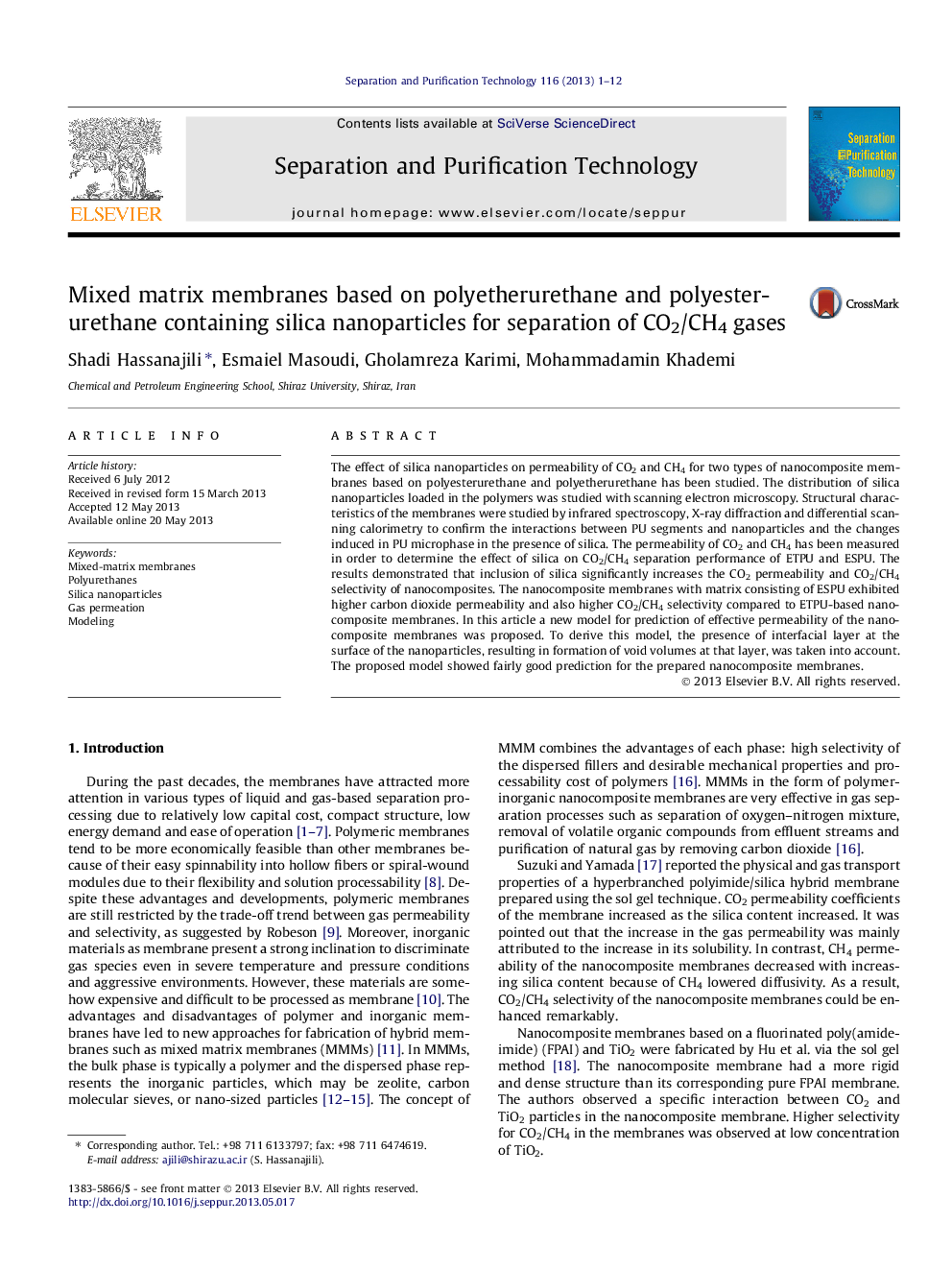| Article ID | Journal | Published Year | Pages | File Type |
|---|---|---|---|---|
| 641625 | Separation and Purification Technology | 2013 | 12 Pages |
Abstract
The effect of silica nanoparticles on permeability of CO2 and CH4 for two types of nanocomposite membranes based on polyesterurethane and polyetherurethane has been studied. The distribution of silica nanoparticles loaded in the polymers was studied with scanning electron microscopy. Structural characteristics of the membranes were studied by infrared spectroscopy, X-ray diffraction and differential scanning calorimetry to confirm the interactions between PU segments and nanoparticles and the changes induced in PU microphase in the presence of silica. The permeability of CO2 and CH4 has been measured in order to determine the effect of silica on CO2/CH4 separation performance of ETPU and ESPU. The results demonstrated that inclusion of silica significantly increases the CO2 permeability and CO2/CH4 selectivity of nanocomposites. The nanocomposite membranes with matrix consisting of ESPU exhibited higher carbon dioxide permeability and also higher CO2/CH4 selectivity compared to ETPU-based nanocomposite membranes. In this article a new model for prediction of effective permeability of the nanocomposite membranes was proposed. To derive this model, the presence of interfacial layer at the surface of the nanoparticles, resulting in formation of void volumes at that layer, was taken into account. The proposed model showed fairly good prediction for the prepared nanocomposite membranes.
Related Topics
Physical Sciences and Engineering
Chemical Engineering
Filtration and Separation
Authors
Shadi Hassanajili, Esmaiel Masoudi, Gholamreza Karimi, Mohammadamin Khademi,
